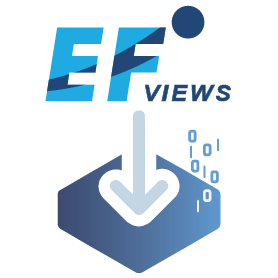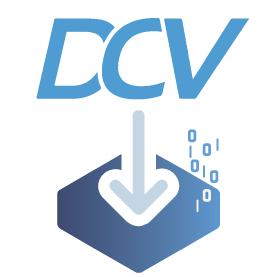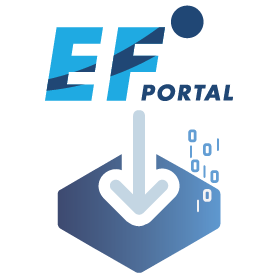EF Portal | Open OnDemand
Which is the right portal for your HPC?
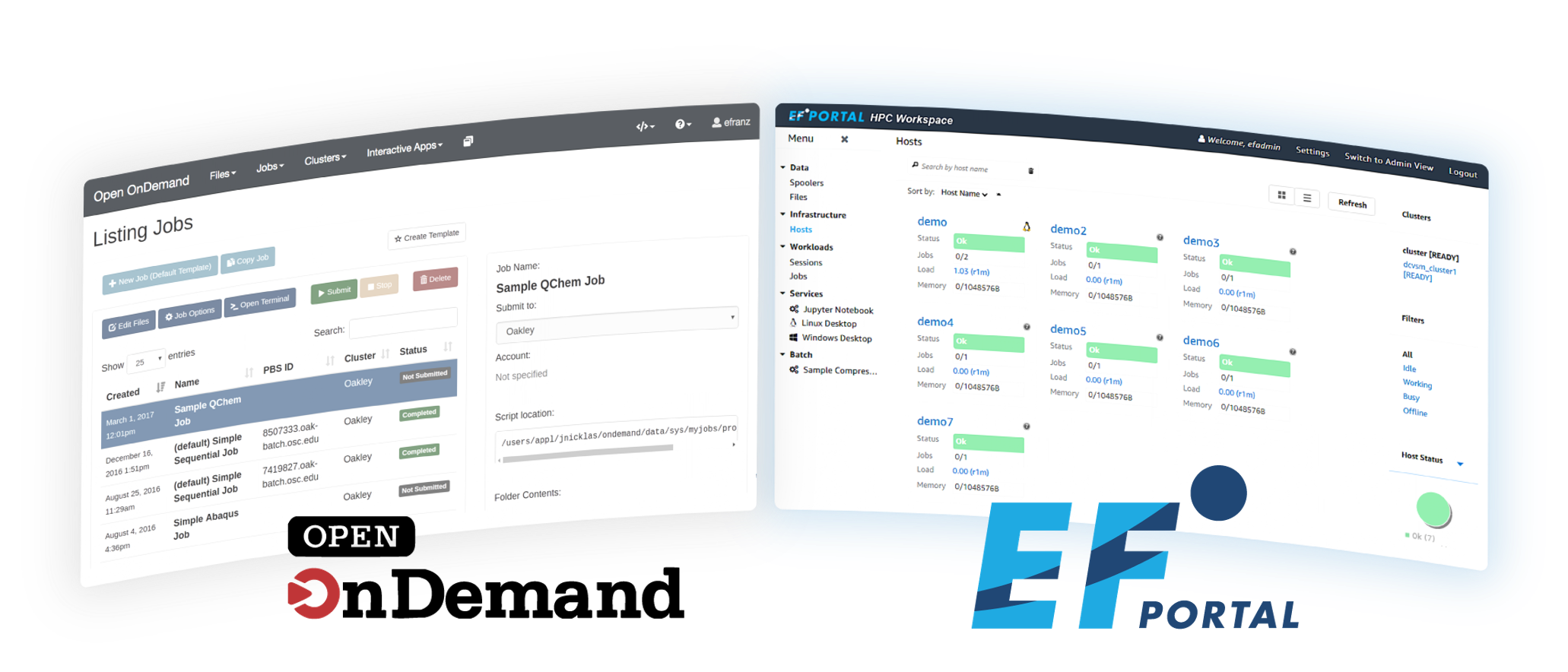
Overview – Open OnDemand and EF Portal
Free isn’t always frictionless: Open OnDemand’s limited features often mean more manual work for admins and a less seamless experience for users.
- User-friendly GUI: EF Portal provides an intuitive interface for job submission and monitoring; OOD relies on manual scripting.
- Data lifecycle management: EF Portal includes built-in tools for managing data workflows; OOD offers basic capabilities.
- Complex HPC environments: EF Portal is built to scale across large, hybrid HPC environments; OOD is better suited to simpler setups.
- Granular admin control: EF Portal delivers advanced configuration options and dashboards out of the box; OOD often requires manual customization.
- Extensibility: EF Portal’s plugin-based architecture makes it very easy to extend functionality.
- Cost & support: EF Portal is available at no cost in AWS environments. Premium support means that you won’t have to rely on community forums.
Job submission and control
A crucial function of an HPC portal is to provide users with mechanisms for submitting and managing their jobs on the HPC system. Easiness of use and depth of job management functionalities are key to efficient portal operations.

Only for users familiar with scripting
and SSH functionality

Job logs and history
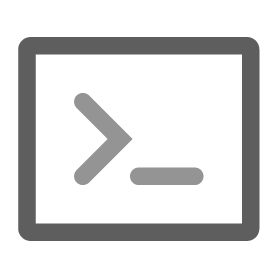
Built-in SSH terminal


User-friendly GUI
with advanced job control and monitoring

Full-fledged GUI

Real-time job & resource monitoring

Estimated job time-to-completion
Data management
HPC portals include features to help users manage the data associated with their computational workloads. These are essential components for user efficiency.

File browsing capabilities,
but integration-dependent streaming

Browser
with file uploads/downloads

Spooler / Preview / Streaming
features depend on implemented integrations
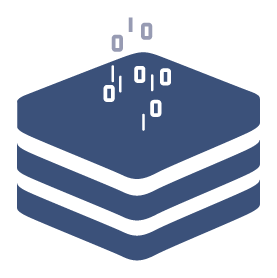

A robust suite of tools
for the whole data lifecycle

Spooler
for centralized job output management

Preview
with visualization apps integration

Streaming
during job execution
HPC capabilities & supported environments
The suitability of an HPC portal depends on its ability to support your own HPC workloads and user environments, including specific software and workflows.

For simpler HPC setups only

Designed for single-host deployments
convenient configuration for simpler environments

Scheduler-dependent cloud connectivity

Wide support for scientific applications
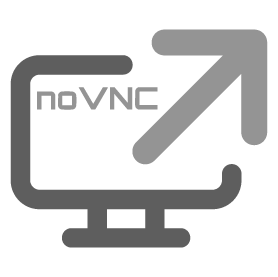
VDI
Supports noVNC and unofficial DCV


Tailored for complex HPC environments

Multi-host deployments with increased security. DMZ support and built-in load balancing

Cloud connectors
including comprehensive AWS integration

Complex multi-steps workflow support
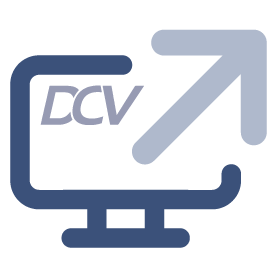
Integrated VDI
Administration & licensing
The administrative overhead and the licensing model of an HPC portal are important considerations for its implementation and maintenance.

Open-source

Free and open-source
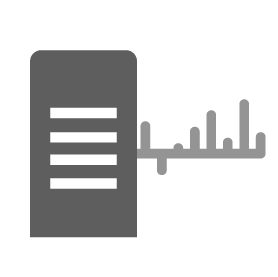
Cluster-level monitoring, expandable through manual integrations


Free on AWS, advanced modular administration, very extensible

Detailed node-level monitoring with graphical real-time resource usage views

Modular administration supporting plug-and-play tool integration

Highly extensible & customizable with plugin architecture and appearance editor
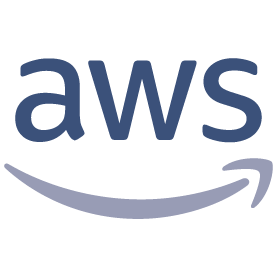
Free on AWS and free evaluation licenses

Fast, responsive support backed by enterprise-grade SLAs
WATCH EF PORTAL IN ACTION
MORE RESOURCES
- EnginFrame to EF Portal FAQ
- What’s New in EF Portal
- How to install EF Portal Portal (Guide)
- Video Walkthrough EF HPC Portal – Intuitive HPC Access and Management Portal for End Users
HAVE QUESTIONS?
If you have any questions, comments or are interested in a free trial or a demo just let us know.

